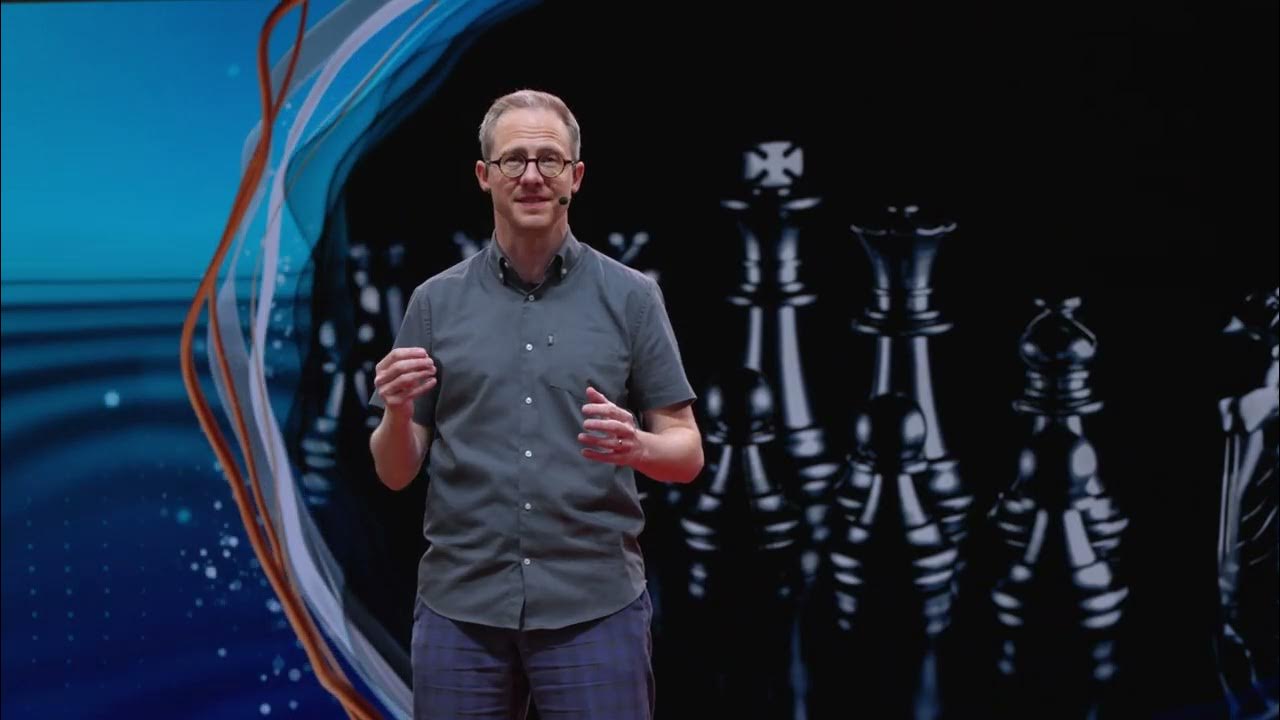STS Intellectual Revolution
Summary
TLDRThis video explores the concept of intellectual revolutions, focusing on paradigm shifts that transform scientific understanding. It highlights the transition from ancient Greek philosophical speculation to key shifts in scientific thought. Examples include Newton's laws of motion, Ptolemy's geocentric model of the universe, and Copernicus' heliocentric theory, which replaced Earth with the Sun at the center of the universe. The video emphasizes how new paradigms explain more phenomena and how older ones can be understood as special cases within the new frameworks.
Takeaways
- 📜 The term 'Intellectual Revolution' refers to Greek speculation about nature before Socrates, from around 600 to 400 BCE.
- 🧠 Intellectual Revolution signifies periods of paradigm shifts, where established scientific beliefs were replaced with new ways of thinking.
- 🌍 Paradigm shifts occur when the usual way of thinking or doing things is replaced by a new and different method.
- 💡 An example of a paradigm shift is Newton's Laws, which describe how objects move in response to forces, replacing previous ideas about gravity.
- 🔭 Claudius Ptolemy, a Greek mathematician and astronomer, developed the geocentric theory, placing the Earth at the center of the universe.
- 🌌 Ptolemy's geocentric model, which dominated for over a thousand years, used nested spheres to describe the universe's structure.
- ☀️ Nicholas Copernicus, a Renaissance astronomer, proposed the heliocentric model, placing the Sun at the center of the universe.
- 🔄 The heliocentric model was a significant paradigm shift, explaining more than the geocentric model and leading to new scientific understanding.
- ⚖️ Paradigm shifts often lead to the old paradigm being considered a special case or an approximation of the new theory.
- 📽 The video emphasizes the importance of paradigm shifts in shaping scientific knowledge and understanding throughout history.
Q & A
What is meant by the term 'intellectual revolution'?
-The term 'intellectual revolution' refers to Greek speculation about the nature of the world in the period before Socrates, roughly from 600 to 400 BCE. It marks the early philosophical inquiries into the nature of existence and reality, and is also referred to as 'pre-Socratic' or 'first philosophy'.
What is a paradigm shift in the context of intellectual revolutions?
-A paradigm shift refers to a significant change that occurs when the usual way of thinking or doing something is replaced by a new and different approach. It is often used to describe changes in scientific beliefs that alter how we understand the world.
What is an example of a paradigm shift mentioned in the video?
-An example of a paradigm shift mentioned is the transition from the geocentric model, which placed the Earth at the center of the universe (developed by Claudius Ptolemy), to the heliocentric model, where the Sun is at the center (proposed by Nicolaus Copernicus).
What was the geocentric theory, and who developed it?
-The geocentric theory was developed by Claudius Ptolemy in the second century. It placed the Earth at the center of the universe, with all other celestial bodies revolving around it. This model was widely accepted for over a thousand years.
How did Nicolaus Copernicus contribute to the intellectual revolution?
-Nicolaus Copernicus contributed to the intellectual revolution by proposing the heliocentric model of the universe, which placed the Sun, rather than the Earth, at the center. This marked a significant paradigm shift in the field of astronomy.
What are Newton's Laws, and how do they represent a paradigm shift?
-Newton's Laws, part of classical mechanics, describe how objects move in response to forces. They represent a paradigm shift because they replaced previous beliefs about motion and gravity, offering a new framework for predicting and understanding physical interactions.
How did Ptolemy's geocentric model influence scientific thought?
-Ptolemy's geocentric model influenced scientific thought by providing a framework for understanding the motions of stars and planets. It was widely accepted for over a thousand years, and became the foundation for astronomy until it was replaced by the heliocentric model.
What was the role of speculation in the intellectual revolution?
-Speculation played a key role in the intellectual revolution, as early thinkers like the pre-Socratics used reason and observation to question and theorize about the nature of existence, the cosmos, and reality, laying the groundwork for later scientific developments.
Why is the intellectual revolution important in the history of science?
-The intellectual revolution is important because it marks the beginning of scientific inquiry and the development of philosophical thought that led to major paradigm shifts, influencing how people understood the world and paving the way for modern science.
How can the new paradigm explain the old one, according to the video?
-According to the video, the new paradigm can often explain more things and subsume the old paradigm as a special case or approximation. For example, classical mechanics (Newton's Laws) can still be derived as a special case within the broader framework of modern physics.
Outlines

This section is available to paid users only. Please upgrade to access this part.
Upgrade NowMindmap

This section is available to paid users only. Please upgrade to access this part.
Upgrade NowKeywords

This section is available to paid users only. Please upgrade to access this part.
Upgrade NowHighlights

This section is available to paid users only. Please upgrade to access this part.
Upgrade NowTranscripts

This section is available to paid users only. Please upgrade to access this part.
Upgrade NowBrowse More Related Video

Thomas S. Kuhn's The Structure of Scientific Revolutions

STS Module 3 - Intellectual/ Scientific Revolution Lecture Video

A ciência avança por revoluções? | O que é ciência afinal? 04

The Structure of Scientific Revolutions - Thomas Kuhn

Chapter 2.4: Michel Foucault, epistemes

Is there consciousness beyond the brain? | Philip Goff | TEDxNewEngland
5.0 / 5 (0 votes)